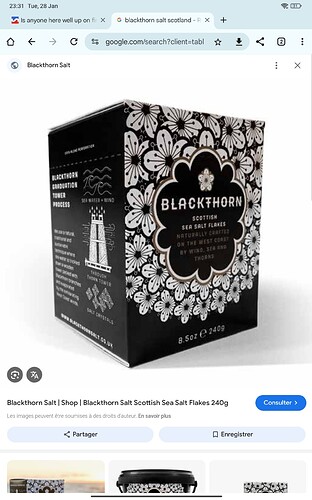Does anyone here dry cure meat/fish and truly know their way around salt?
I have an addiction to magret sec and cure it myself using 1kg bags of ‘Camargue’ salt from LeClerc and then after a batch, throwing the stuff in the pool. At a euro plus a bag, not breaking the bank, but I wish to up production as too many people are latching onto the stuff and finding excuses to pop around for aperos, leaving little magret sec for me to enjoy ![]()
I see on the same shelf as the bags I buy, 10kg daddy bags of salt at a few euros a bag. These bags have scant description on them, but as they are in the food section, I assume rightly or wrongly that it is not iodised nor with added nitrites, and therefore ok for curing…?
Is there a way of telling by sight/taste if a salt is iodised? I think regulation states that salt sold with a nitrite content should be pink, which may be ok in the wider world, but the finest salt from Gruissan is of course famously pink… so, my question: how does one determine purity of salt?
